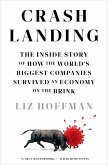A world once convinced of progress was brought to its knees when prosperity turned to ruin. As banks collapsed and unemployment soared, despair spread faster than recovery ever could. Out of this turbulence emerged not only hunger and hardship but also the seductive promises of authoritarian voices. This book reveals how the Great Depression history was not simply an economic downturn but the spark that ignited the rise of fascism in Europe, empowered communists, and fractured fragile democracies worldwide. Through gripping narratives and comparative insights, readers are taken inside the breadlines of America, the rallies of Weimar Germany, the propaganda halls of Moscow, and the militarised ambitions of Japan. Each chapter unpacks how economic collapse and democracy are bound in a precarious relationship-how financial ruin opens doors to ideologies that promise certainty, identity, and revenge. This is not just a history of the 1930s; it is a mirror for our time. As financial crises, polarisation, and populism once again dominate headlines, the book connects the political consequences of Depression to present dilemmas. It asks urgent questions: What makes societies choose extremism over reform? Can institutions survive shocks of similar magnitude today? Readers seeking a deeper understanding of the causes of World War II, the dynamics of authoritarianism and markets, and the enduring lessons from 1930s politics will find both clarity and warning here. - Discover how economic despair dismantled democratic trust - Trace the pathways from history of economic crises to war and global upheaval - Learn why the 1930s remain a guide to understanding democracy under economic stress Provocative, meticulously researched, and globally resonant, this work offers more than historical detail-it equips readers with the insight to recognise how fragile freedom becomes when fear outpaces hope.
Bitte wählen Sie Ihr Anliegen aus.
Rechnungen
Retourenschein anfordern
Bestellstatus
Storno








